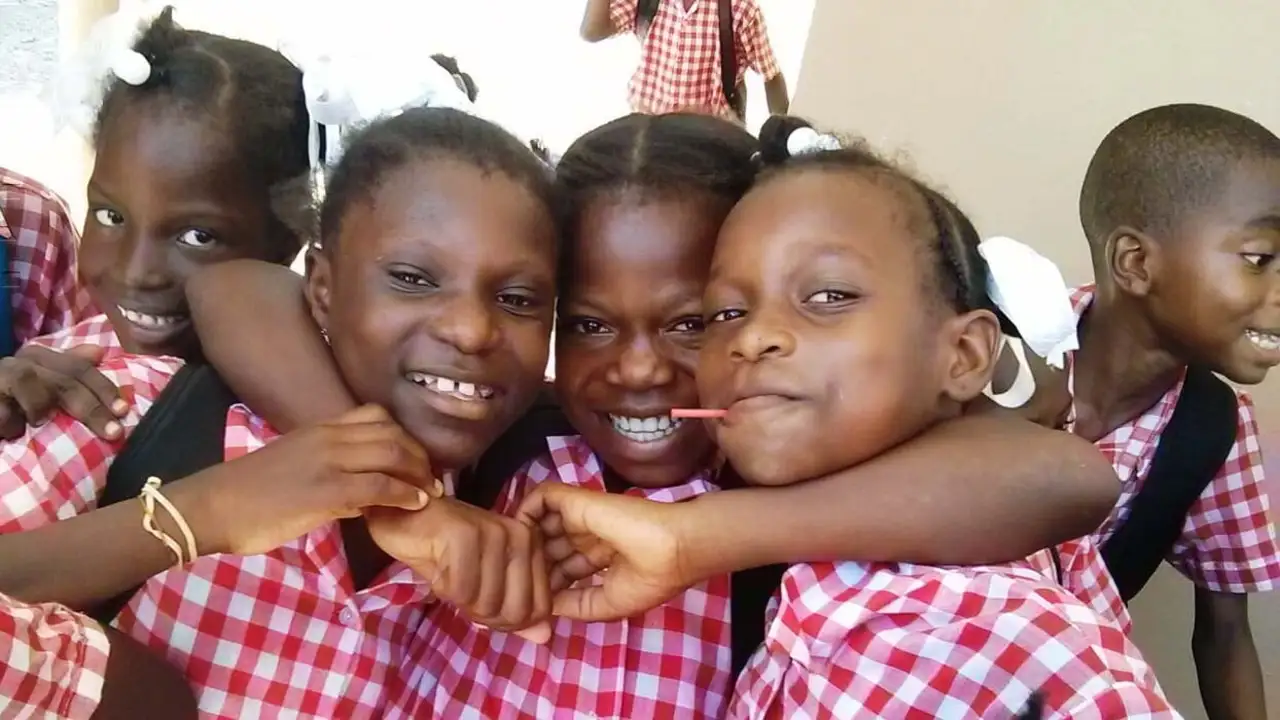Mission
Haiti Now is dedicated to empowering Haitian girls living in domestic servitude to overcome poverty and exploitation to achieve economic security.
How much would you like to donate?
Vision
We want to see girls in domestic servitude overcome extreme poverty,
heal emotional trauma, and live rewarding lives.
Who We Are
Haiti Now (Ayiti Now Corp) is a non-profit based in Miami, Florida that is fundraising to build a Learning Center & Safe House in Haiti for girls in domestic servitude. It is a volunteer-based organization, operated completely remotely. Alex Lizzappi founded Haiti Now after the 2010 earthquake in Haiti which killed many, including thousands of children.
Haiti Now’s first efforts were helping an orphanage in the immediate days after the 2010 earthquake. This included offering check-ups and vaccinations. Later in 2010, we founded our first Book Bank. It offered teacher training programs and plenty of school supplies. In 2017, driven by the desire to improve the program’s design, we reviewed scientific research and the active programs of other organizations working with Restavek. We began partnerships with compatible groups and analyzed their data. Our main sources of data were surveys conducted with children in domestic servitude. See the data visualizations we made here: https://public.tableau.com/app/profile/haiti.now.
The combination of our experiences with Restavek and our review of the literature inspired us to develop new programs for Restavek. These were the business incubation, accelerated education, and mental health programs. The Learning Center & Safe House was born.
Our first step was architectural drawing. We maximized energy, water, and materials efficiency to improve the sustainability of the facility.
Currently, our main goal is to establish mental health, business incubation, and accelerated education programs. These will allow students to reach a sixth-grade education in only three years. Since 2010, Haiti Now has improved the lives of over 1300 impoverished children. We are continuing to help more each and every day.

Safe House
Girls in domestic servitude need safe spaces, improved living conditions, and reliable high-quality programs to overcome extreme poverty and break the cycle of domestic servitude.
Business Incubation
Ideation, research and development of income generation activities or vocational skills to increase the girls economic security and re-integration into their families and communities.
Mental Health
The experience of abuse, neglect or exploitation can cause severe, long-term health and mental health problems. This program supports the psychosocial well-being of the girls.
Accelerate Education
The girls will graduate basic education in 3 years instead of 6. We also focus on essential life skills like self-awareness, creative and critical thinking, decision making and problem solving.
Our Values

Empowerment
We provide the children we serve with educational opportunities in an environment that fosters a sense of belonging.

Integrity
We treat the children we serve with dignity and work in their best interests at all times.

Quality
We strive for excellence in the education, training, and support services provided to the children we serve.

Innovation
We evaluate the effectiveness of our programs and embrace change as an opportunity to continually improve our methods and processes.

Transparency
We exemplify good stewardship in fiscal administration and strive for simplicity and consistency in our reporting.
What Sets Us Apart
- Quality Over Quantity
We focus on impact, not numbers. We would rather transform the lives of 100 children than offer inadequate services to 1,000.
- Focus On Restavek Girls
Understanding Restavek girls’ unique needs allows us to tailor our efforts for maximum effectiveness and efficiency.
- Real And Impactful Action
Our comprehensive approach addresses the root causes of problems faced by Restavek girls to achieve long-term sustainable change.
- Investing In Economic Empowerment
We are preparing Restavek girls to become skilled and independent individuals by providing access to consulting services or customized technical advice for entrepreneurs and micro-entrepreneurs; capital-in-kind (e.g., inventory) for micro-entrepreneurs; intensive asset-specific training, and regular follow-up visits by an asset specialist and program officer; income generation training and follow-up technical expert advice; formal ownership and control of assets, to improve their productivity and economic security; access to markets and help overcome constraints in meeting demands of supply chains; access to electricity, financial and digital literacy; demand-oriented skills training for marketable skills, combined with on-the-job training and when possible wage subsidies; we want young women who can affect positive change in their communities.
- Fully Engaged and Accountable
We are on the ground and take full responsibility for the Restavek girls in our care. We are accountable to our donors and partners and make sure every dollar counts.